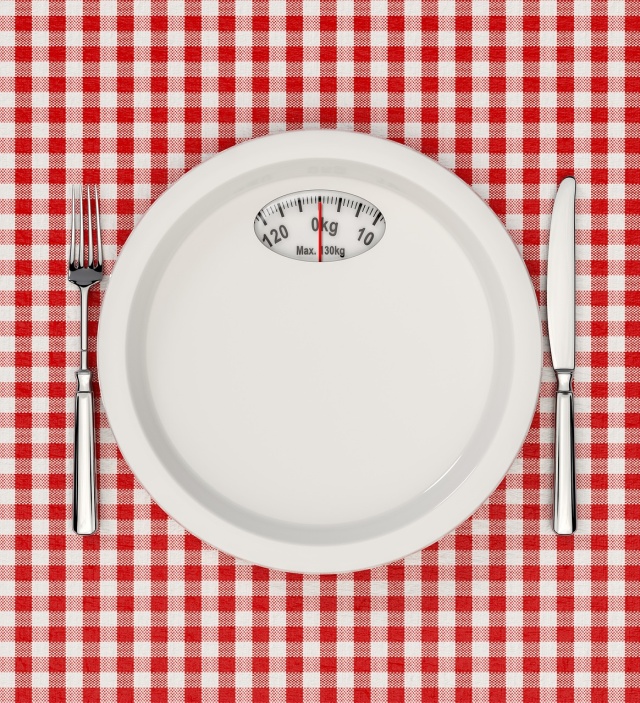No, you should not expect to lose weight every day on a diet. Weight loss can fluctuate due to various factors.
Weight loss is a complex process influenced by several variables. Daily weight fluctuations are normal and can result from water retention, hormonal changes, or muscle gain. A consistent downward trend over time is more important than daily changes. Patience and persistence are key to achieving sustainable weight loss.
Focus on healthy eating, regular exercise, and maintaining a balanced lifestyle. Tracking progress with weekly weigh-ins can offer a more accurate picture of your weight loss journey. Remember, quick fixes rarely lead to lasting results. Aim for gradual, steady weight loss to improve your chances of long-term success.

Credit: www.vox.com
The Daily Weight Loss Myth
Many people believe they should lose weight every day on a diet. This idea leads to stress and disappointment. The truth is, daily weight loss is a myth. Understanding this can help create realistic expectations.
Origins Of The Myth
The myth started with early diet programs and weight-loss ads. These sources often showed quick, dramatic results. They promoted daily weight checks as proof of success. This led people to think weight loss should happen every day.
Also, celebrities and influencers shared their rapid weight loss stories. This added to the belief that weight loss should be quick and visible daily.
Why It Persists
People want immediate results. They see daily weight checks as a way to track progress. When they don’t see daily changes, they feel discouraged. This keeps the myth alive.
Social media also plays a big role. Influencers post daily updates, showing their “progress.” Followers think they must see the same results. This pressure makes the myth hard to break.
| Factor | Impact on Weight |
|---|---|
| Water Retention | Can cause temporary weight gain |
| Food Intake | Affects daily weight fluctuations |
| Exercise | May lead to muscle gain, which weighs more than fat |
Weight can vary due to many factors. Water retention, food intake, and exercise all impact daily weight. Expecting daily weight loss ignores these factors.
- Remember, weight loss is not a straight line.
- Focus on long-term trends, not daily changes.
- Stay positive and patient.
By understanding the daily weight loss myth, you can set realistic goals. This leads to a healthier, happier journey.
Understanding Weight Fluctuations
Weight fluctuations are normal during a diet. Many factors can cause these changes. Understanding these fluctuations can help manage expectations. It also reduces unnecessary stress.
Factors Affecting Daily Weight
Several factors can influence daily weight. Here are some key elements:
- Food intake: What you eat affects your weight daily.
- Exercise: Physical activity can cause temporary weight changes.
- Sleep: Lack of sleep can impact weight. Good sleep is essential.
- Stress: Stress can lead to weight gain or loss.
- Hormones: Hormonal changes can affect your weight.
Role Of Water Retention
Water retention is a common cause of weight fluctuations. Your body can hold extra water for various reasons:
- Salt intake: Eating salty foods can cause water retention.
- Menstrual cycle: Women may retain water during their cycle.
- Dehydration: Not drinking enough water can lead to retention.
- Medications: Some medicines can cause water retention.
- Weather: Hot weather can make you retain more water.
Here is a table summarizing the factors:
| Factor | Effect |
|---|---|
| Food intake | Daily weight changes |
| Exercise | Temporary weight changes |
| Sleep | Impacts weight |
| Stress | Weight gain or loss |
| Hormones | Affects weight |
| Salt intake | Causes water retention |
| Menstrual cycle | Water retention |
| Dehydration | Leads to retention |
| Medications | Causes retention |
| Weather | More retention in hot weather |
Realistic Weight Loss Goals
Setting realistic weight loss goals is key to a successful diet. It helps you stay motivated and keeps you on track. Unrealistic goals can lead to frustration and giving up. Let’s explore how to set achievable milestones and the importance of long-term focus.
Setting Achievable Milestones
Small, achievable milestones are better for your weight loss journey. They keep you motivated and help you see progress. Consider the following tips:
- Break down your ultimate goal into smaller steps.
- Set weekly or bi-weekly targets.
- Track your progress regularly.
For example, if you want to lose 20 pounds, aim for 1-2 pounds a week. This approach makes the goal seem less daunting and more attainable.
Importance Of Long-term Focus
It’s crucial to focus on long-term health benefits rather than quick fixes. Quick weight loss methods are often unsustainable and can harm your body. Instead, adopt healthy habits that you can maintain over time. Some tips to keep a long-term focus include:
- Adopt a balanced diet with fruits, vegetables, and lean proteins.
- Incorporate regular physical activity into your routine.
- Get enough sleep and manage stress.
Remember, the goal is to improve your overall health, not just to lose weight quickly. Stay patient and consistent, and you’ll see lasting results.

Credit: www.amazon.com
Healthy Diet Practices
Adopting healthy diet practices is crucial for effective weight management. Many wonder if they should lose weight daily on a diet. The answer lies in sustainable habits. Focusing on balanced nutrition and regular exercise helps achieve long-term goals.
Balanced Nutrition
Balanced nutrition involves eating a variety of foods. This ensures your body gets all the essential nutrients. A balanced diet includes:
- Fruits and Vegetables: Rich in vitamins and minerals.
- Whole Grains: Provide energy and fiber.
- Lean Proteins: Essential for muscle repair and growth.
- Healthy Fats: Important for brain health.
Eating a variety of these foods helps maintain energy levels. It also supports overall health and well-being.
Role Of Exercise
Exercise plays a key role in weight management. It helps burn calories and builds muscle. Regular physical activity includes:
- Cardio Exercises: Running, cycling, and swimming.
- Strength Training: Weightlifting and resistance exercises.
- Flexibility Exercises: Yoga and stretching routines.
Combining different types of exercises maximizes benefits. It boosts metabolism and enhances mood. Aim for at least 30 minutes of exercise most days of the week.
Adopting these healthy diet practices helps achieve a sustainable weight. Focus on balanced nutrition and consistent exercise.
Psychological Impact Of Daily Weigh-ins
Daily weigh-ins can have a significant psychological impact on individuals. Understanding the mental effects is crucial for a balanced approach to weight loss. Let’s dive into the potential stress and anxiety, as well as how to build a positive mindset.
Stress And Anxiety
Weighing yourself daily can create stress and anxiety. Seeing a number that isn’t what you expected can be disappointing.
This constant monitoring can lead to obsessive behavior. You may start feeling anxious about every meal or snack.
Sometimes, weight fluctuations are due to water retention or muscle gain. These factors can cause unnecessary stress if you don’t understand them.
| Factors | Impact |
|---|---|
| Water Retention | Temporary weight gain |
| Muscle Gain | Healthy but may show as weight gain |
| Daily Diet Changes | May cause weight fluctuations |
Building A Positive Mindset
Building a positive mindset is essential for successful weight loss. Focus on overall health improvements rather than daily weight.
- Track your energy levels.
- Notice changes in your mood.
- Pay attention to your clothing fit.
Shift your mindset from short-term results to long-term health. Celebrate small victories that are not related to the scale.
- Set realistic goals.
- Practice self-compassion.
- Seek support from friends or a community.
A positive mindset can make your weight loss journey more enjoyable and sustainable. Keep your focus on overall well-being rather than just a number on the scale.
Scientific Studies On Weight Loss Patterns
Understanding weight loss patterns is important for anyone on a diet. Various scientific studies have looked into how weight changes over time. These studies help us understand if daily weight loss is realistic or necessary.
Short-term Vs. Long-term Studies
Short-term studies focus on weight loss over days or weeks. They often show quick results and significant weight drops. This can be motivating but may not be sustainable. Long-term studies, however, look at weight loss over months or years. They provide a broader picture of how weight changes over time.
| Study Type | Duration | Findings |
|---|---|---|
| Short-Term | Days to Weeks | Quick, Significant Weight Loss |
| Long-Term | Months to Years | Steady, Sustainable Weight Loss |
Key Findings
Key findings from these studies highlight important aspects of weight loss. Short-term studies show rapid weight loss can be achieved. But, it may not be maintained. Long-term studies reveal weight loss tends to slow down over time. This suggests that a steady, gradual approach is more effective and sustainable.
- Short-Term Studies: Quick results, often not sustainable.
- Long-Term Studies: Slow but steady, more sustainable.
- Daily Weight Loss: Not always practical or necessary.
These studies help us understand that losing weight every day is not always needed. Focusing on long-term, steady progress is often the best approach.
Success Stories And Testimonials
Many people wonder if they should lose weight every day on a diet. Hearing from real people can help. Success stories and testimonials offer real-life experiences. They show common strategies that work.
Real-life Experiences
Many individuals share their weight loss journeys. These stories are full of ups and downs. Jane lost 20 pounds in three months. She followed a balanced diet and exercised daily. Mark dropped 15 pounds in two months. He used portion control and walked every day. Their stories inspire others to keep going.
Sarah faced many struggles but stayed committed. She started with small changes. She replaced soda with water. She also added more vegetables to her meals. Over six months, she lost 25 pounds. Her story teaches patience and persistence.
Common Strategies
Successful dieters often share common strategies. Here are some tips from their experiences:
- Consistent Exercise: Many people walk, run, or do yoga daily.
- Balanced Diet: They eat fruits, vegetables, lean proteins, and whole grains.
- Portion Control: They use smaller plates to manage portion sizes.
- Stay Hydrated: Drinking water helps curb hunger and boosts metabolism.
- Mindful Eating: They eat slowly and enjoy each bite to feel full sooner.
These strategies are easy to follow. They can fit into any lifestyle. They help people lose weight without stress.
Here’s a quick look at how these strategies worked for some:
| Name | Weight Lost | Time Taken | Key Strategy |
|---|---|---|---|
| Jane | 20 lbs | 3 months | Balanced Diet |
| Mark | 15 lbs | 2 months | Portion Control |
| Sarah | 25 lbs | 6 months | Mindful Eating |
These success stories and strategies can help you on your weight loss journey. Remember, every small change can make a big difference.
Expert Tips For Sustainable Weight Loss
Many people start diets hoping to shed pounds quickly. Yet, rapid weight loss isn’t always healthy or sustainable. Experts suggest focusing on long-term habits for lasting success. Let’s explore some expert tips for sustainable weight loss.
Advice From Nutritionists
Nutritionists play a key role in weight management. They offer personalized advice to help you make smart choices. Here are some tips from nutritionists:
- Eat Balanced Meals: Include proteins, carbohydrates, and healthy fats in each meal.
- Stay Hydrated: Drink plenty of water throughout the day.
- Portion Control: Watch your serving sizes to avoid overeating.
- Snack Wisely: Choose healthy snacks like fruits, nuts, and yogurt.
- Limit Sugar: Cut back on sugary drinks and desserts.
Lifestyle Changes
Weight loss isn’t just about diet. Your lifestyle choices are crucial for success. Here are some lifestyle changes that can help you lose weight sustainably:
- Regular Exercise: Aim for at least 30 minutes of activity daily.
- Sleep Well: Ensure you get 7-9 hours of sleep each night.
- Stress Management: Practice relaxation techniques like yoga or meditation.
- Stay Consistent: Stick to your routine even on weekends.
- Track Progress: Keep a journal of your meals and activities.
| Tip | Benefit |
|---|---|
| Eat Balanced Meals | Provides essential nutrients |
| Stay Hydrated | Helps control hunger |
| Regular Exercise | Boosts metabolism |
| Sleep Well | Supports overall health |
| Track Progress | Keeps you motivated |

Credit: www.healthline.com
Frequently Asked Questions
Should You Lose Weight Every Day On A Cut?
No, you shouldn’t expect to lose weight every day on a cut. Weight loss can fluctuate due to various factors.
Should You Weigh Yourself Every Day When Dieting?
Weighing yourself daily can help track progress. It provides immediate feedback and helps adjust your diet plan.
How Many Times Should I Eat In A Day If I’m Trying To Lose Weight?
Eat 3 balanced meals and 1-2 healthy snacks daily to support weight loss. Focus on portion control and nutrient-dense foods.
Is It Healthy To Go On And Off Weight Loss Diets As Needed?
Frequently switching weight loss diets can be harmful. It may lead to nutritional deficiencies and metabolic issues. Consistency in a balanced diet and regular exercise is healthier. Always consult a healthcare professional before making significant dietary changes.
Conclusion
Achieving daily weight loss on a diet is not always practical. Focus on sustainable, long-term habits for better results. Listen to your body and consult a healthcare professional. A balanced approach ensures lasting health benefits. Remember, patience and consistency are key to successful weight management.


